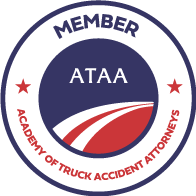We’re often asked by our clients what they should have done after having been involved in the accident (the term “accident” is actually a misnomer, as is discussed in a previous blog post). In some respects, the answer to that question depends on the nature of the accident (i.e. whether it was a“fender bender” or instead a more violent collision) and the extent of the injuries, if any, the person suffered.
Your first priority after you’ve been involved in an accident should be your health (as opposed to speaking with the driver of the other vehicle, taking photographs with your cell phone, etc.). If you’re experiencing any pain, or lost consciousness, or aren’t thinking clearly (which can be indicative of a concussion), then you’ll want to request, or wait for medical personnel (i.e. ambulance or fire department paramedics) to arrive and evaluate you. Calling 911 should make this happen, and should also lead to a local police agency responding, and investigating. As should be obvious, you’ll want to follow all of the advice given to you by the responding paramedics, i.e. going to a hospital by ambulance if recommended.
In the event that you have no feeling (“sensation”) in any of your arms or legs, it is critical that you do your best not to move, at all, until you can be evaluated for a possible spinal cord injury, i.e. if a vertebra fractures and injures the spinal cord. In such a case it is critical to the best possible recovery from that injury that experts stabilize, and then transport you, to avoid, or limit any additional injury from the transport process.
Not infrequently, immediately after being involved in an accident a person may not be sure that they have sustained injury. Often, our clients describe having felt as though they were “in shock”immediately following an accident. Most often in such a case, the person begins to notice pain later that same day, or when they wake up the following day. When this is the case, you absolutely should be checked out medically, whether that be by your primary care physician, or at a nearby emergency room or urgent care clinic, etc.
Digressing for a moment, you may be concerned about being able to cover the medical expenses associated with a ride in an ambulance and evaluation in an emergency room. You likely shouldn’t be; particularly if you are an Oregon resident. Per Oregon law, your auto insurance policy will include a minimum of $15,000.00 in “personal injury protection” (often referred to by the acronym“PIP”) coverage for your medical treatment expenses (if you are a passenger, the vehicle owner’s policy should provide the same coverage to you).
The nature and extent of your injuries will dictate the follow-up medical care that you receive, which may range from surgery (i.e. if you sustain a fracture, herniated disc, etc.) to physical therapy treatment, chiropractic treatment, and so forth. It is critically important both for your health, and for your claim, that you: (A) are completely honest with each medical care provider that you see; and (B) that you follow all of the treatment recommendations that you receive. Regarding the former, unfortunately, over the years we have worked on more than a few cases wherein the person for some reason failed to inform one or more of their treatment providers about pertinent pre-existing conditions that they had, i.e. having previously been in an accident and sustaining similar injuries and undergoing similar treatment. When this occurs, the value of the person’s claim is reduced dramatically, as the liability insurance company will doubtlessly be aware of the prior injury, treatment, and claim.
Turning to the importance of following all of your treatment providers’ recommendations (and attending all of your scheduled visits), not only is this a wise thing to do in order to achieve the best possible recovery, it is also critical to insuring that your are compensated fairly when your case is resolved. If your medical records indicate that one or more of your care providers gave you recommendations that you chose not to follow, you can count on the liability insurance company for the at-fault party to pick up on that, and make the argument that any claim that you sustained permanent injury is not credible because you failed to try all of your physicians’ recommendations.
This post is necessarily generalized in nature. Of course, each person’s injuries, and claim, is different; in order for us to provide someone with true “advice” we would need to be retained so that we could evaluate the details of their claim and provide case-specific guidance.
In this same regard I will conclude by noting that we are sometimes asked whether someone who has been injured in an accident should retain an attorney right away, or instead wait to first learn how much they’ll be offered to settle the claim. In the vast majority of cases, it is wise to retain counsel immediately. In many cases there can be certain evidence that is available for only a short time following an accident, and only an experienced attorney would recognize, and be able to timely“preserve” that evidence for later use in settling the claim and/or trying the case. As well, our fee is completely contingent in nature no matter when we’re retained, and so for that reason, as well, it also makes sense to hire an attorney as soon as possible.
If you have any questions, please return to our Home page and use the contact tool to reach out to us; we’ll get back to you promptly.








